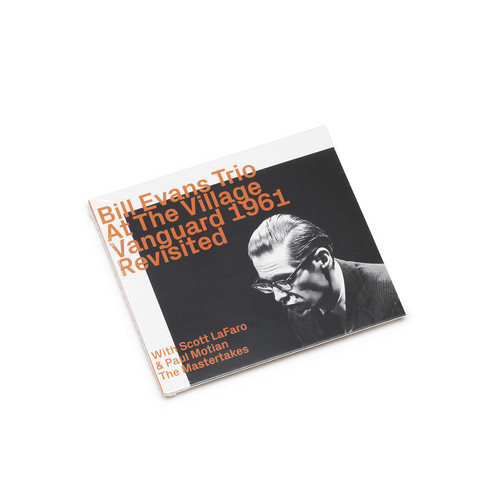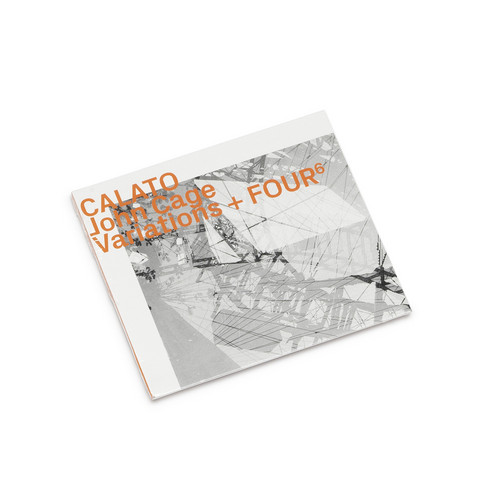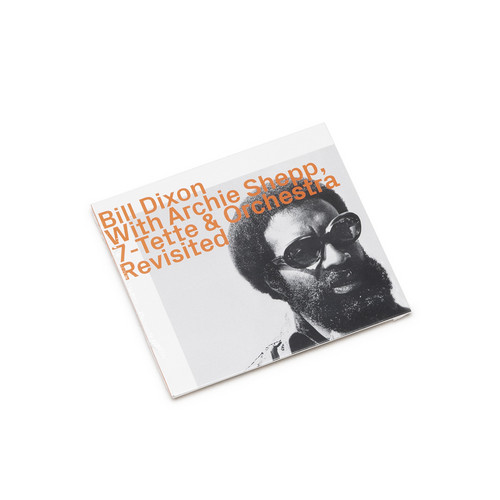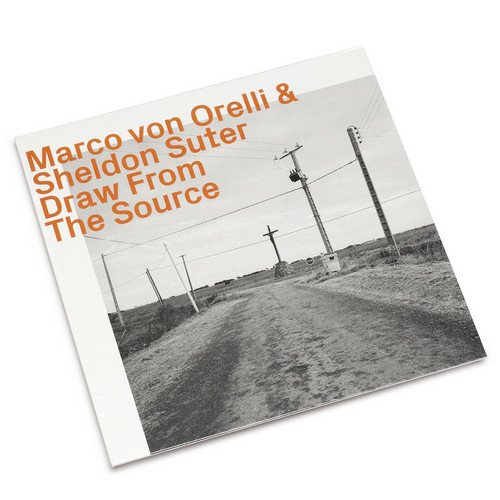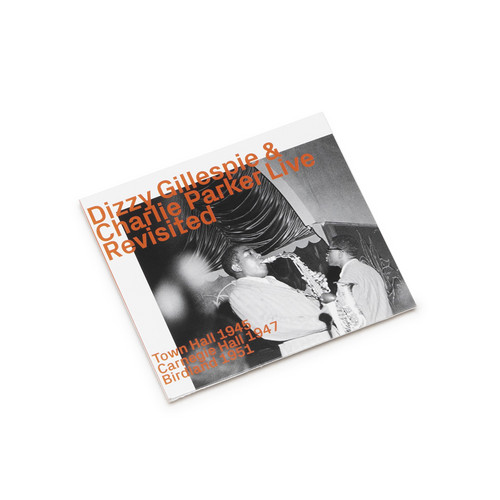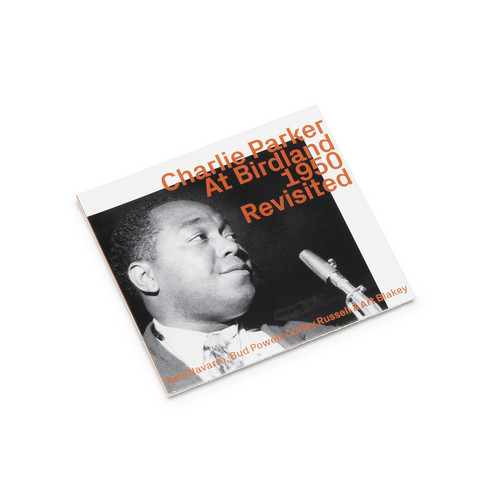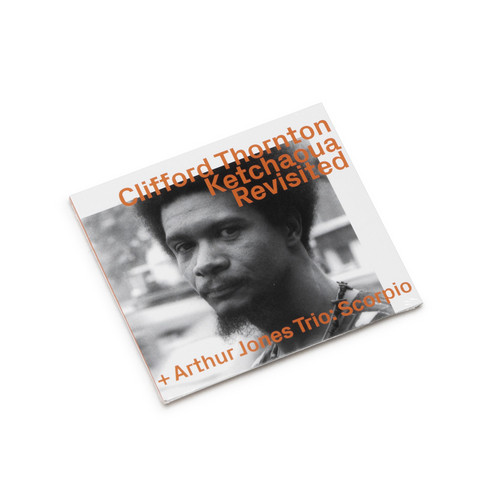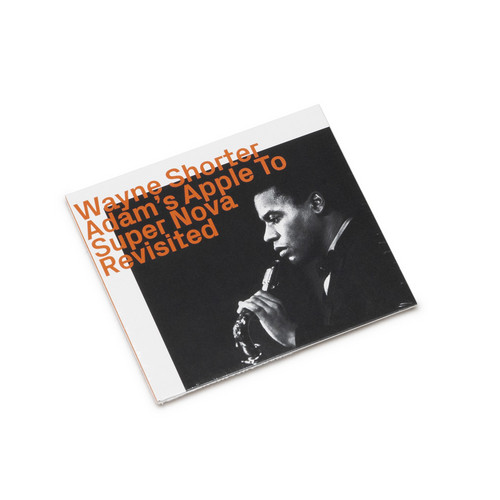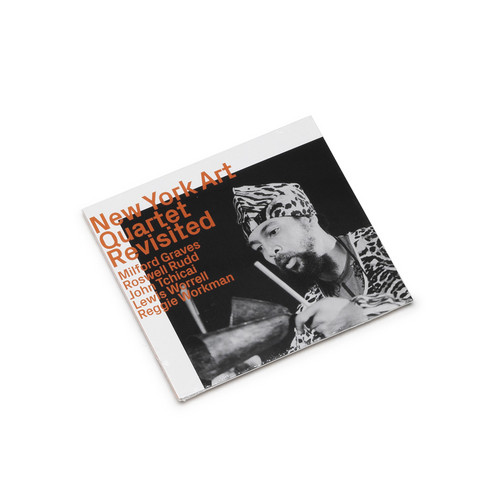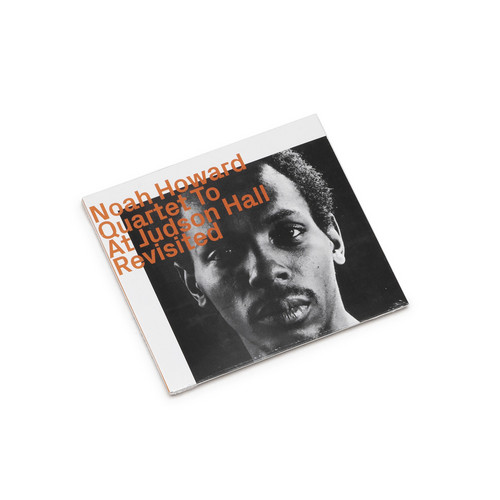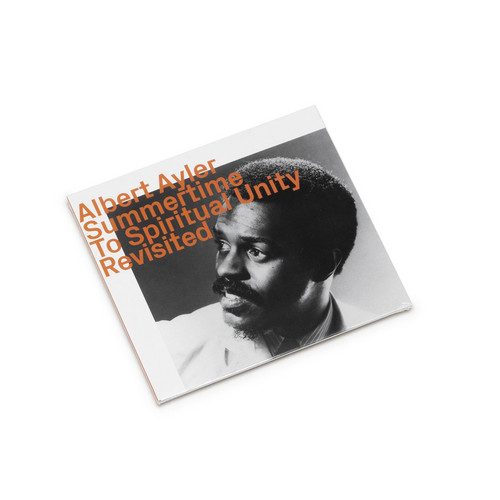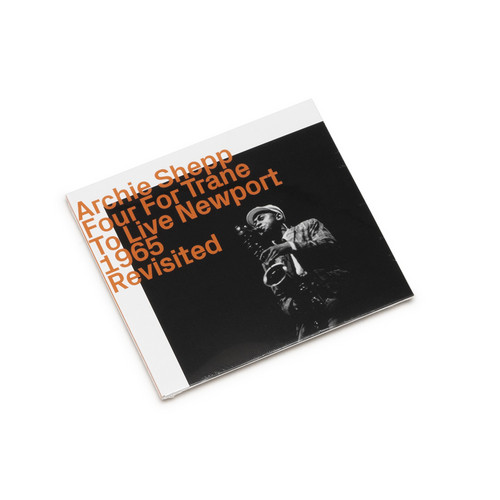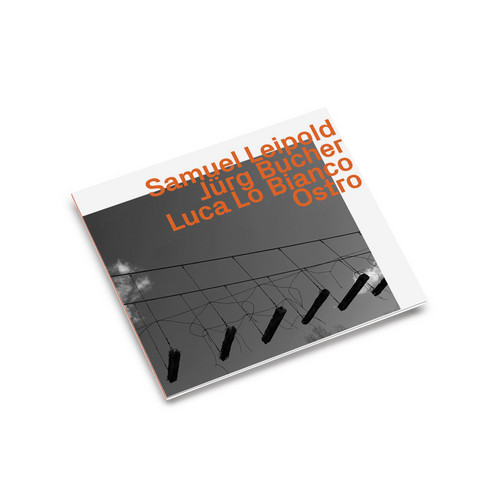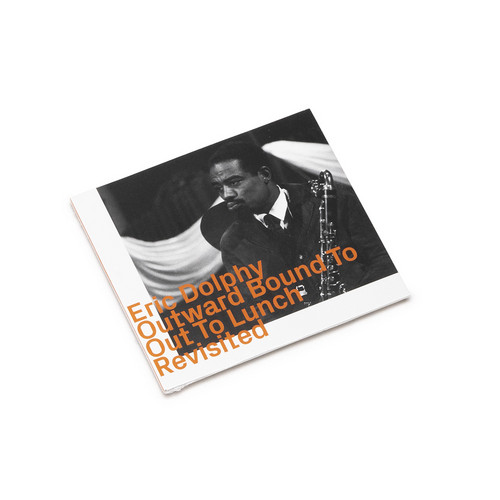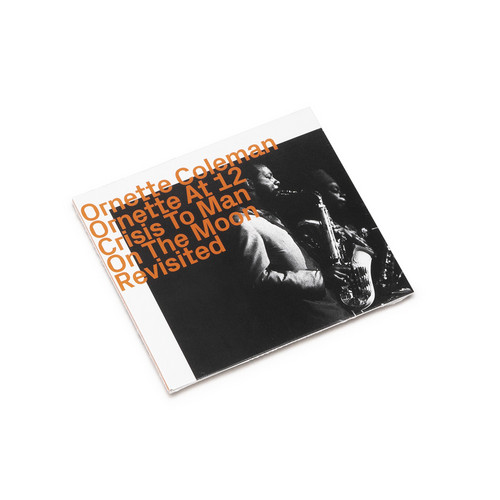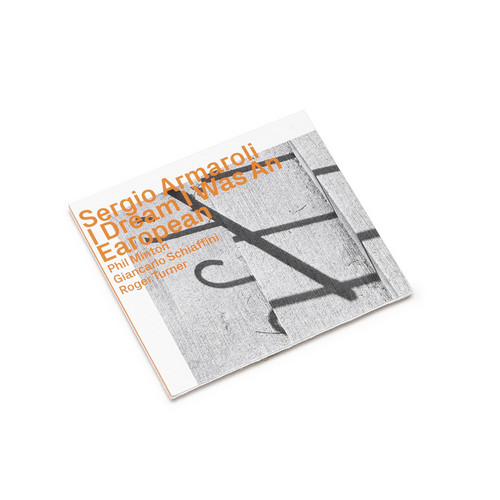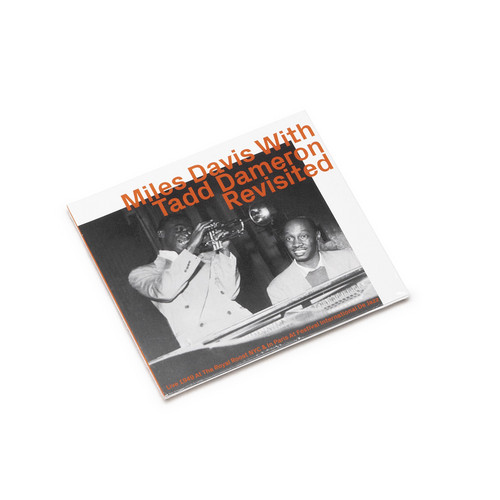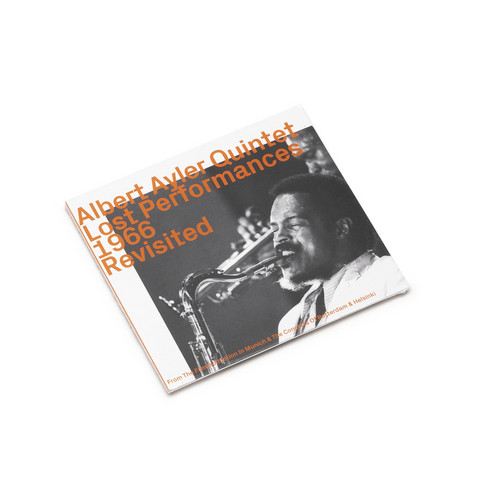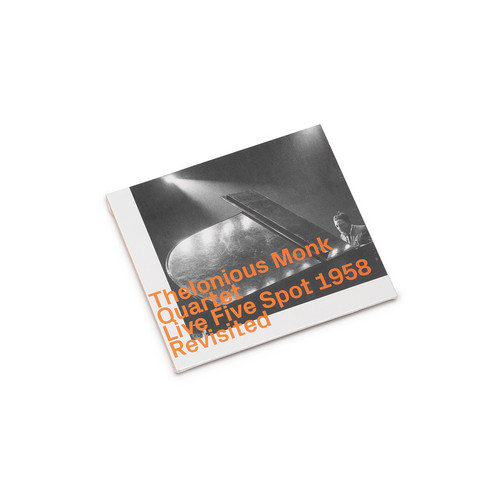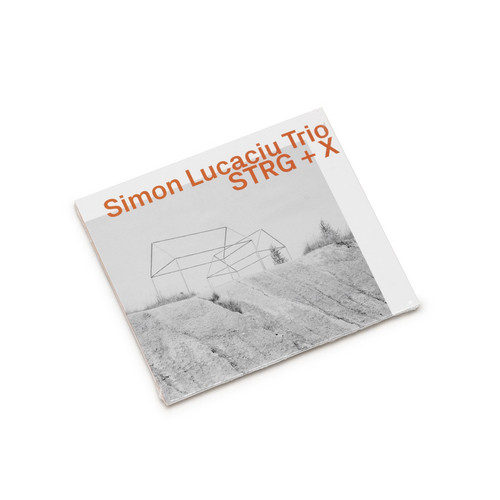★ezz-thetics
At The Village Vanguard 1961, Revisited
'Mention of Motian and LaFaro brings us to this disc, perhaps belatedly. But other than observing that the music is presented here following immaculate and unprecedented sound restoration, what more needs to be said about it? What more, usefully, can be said? The performances are as close to perfection as makes no difference, and as close to immortality, too, and if you are still reading thesenotes, you will not need to be told why.' – Chris May
Executive producer’s notes: 'Once you start to …
John Cage Variations + Four6
Temporary Super Offer! "I ask how CALATO's use of graphic scores help them break down the divisions between contemporary composition and improvisation? “We started as a noise improvisation band,” they respond. “We spent several years playing together without any kind of parts or scores, just working deeply on listening to each other, reacting and generating a kind of togetherness that made it possible to create live music in a very fast and intuitive way.” Then they started investigating diffe…
With Archie Shepp, 7-Tette & Orchestra - Revisited
While his recordings with Archie Shepp and 7-Tette established Bill Dixon as a distinctive jazz modernist, ahead of the curve, creating a niche within a crowded field of emerging artists, it is Intents and Purposes (Orchestra) that established his singularity. Together, they constitute the first chapter of a recorded legacy that continues to grow in status and influence. – Bill Shoemaker
Draw From The Source
Tip! *200 copies limited release. Vinyl version* ”In its sum, Draw From The Source recounts a multidimensional journey whose sources and paths constantly cross. Marco von Orelli and Sheldon Suter reveal a lot about themselves, about their individual idiosyncrasies and about their common feelings in this performance carried by finest lyricism. But behind this journey from the north to the south, from urban stagnation to Mediterranean lightness, there is also a call for us to reflect on the true n…
Dizzy Gillespie & Charlie Parker At Town Hall 1945, Carnegie Hall 1947 & Birdland 1951 "Revisited"
Temporary Super Offer! When Charlie Parker and Dizzy Gillespie went into the recording studio together on 28 February 1945, they had already served a shared apprenticeship in the big bands of Earl Hines and Billy Eckstine, had jammed informally exploring their common interest in adventurous extensions of swing harmonies and reconfigured rhythms, and were, individually and collaboratively, prepared to redirect the course of modern jazz. That session shouldn’t in any way be considered the public “…
Charlie Parker At Birdland 1950 "Revisited“
Temporary Super Offer! "This one was working. This one always had been working. This one was always having something that was coming out of this one that was a solid thing, a charming thing, a lovely thing, a perplexing thing, a disconcerting thing, a simple thing, a clear thing, a complicated thing, an interesting thing, a disturbing thing, a repellant thing, a very pretty thing. This one was one whom some were follow-ing. This one was the one who was working.” Gertrude Stein’s 1910–11 descrip…
Clifford Thornton Ketchaoua To Scorpio By Arthur Jones "Revisited"
Temporary Super Offer! Clifford Thornton and Arthur Jones have remained largely unknown ever since, except to collectors who treasure those early Parisian records and the world they evoke. We know little of what they did in later years, but if Hemingway was right, “If you are lucky enough to live in Paris [read “jazz”] as a young man, then wherever you go for the rest of your life it stays with you”. Thornton died in Switzerland in 1989, largely forgotten in his “home” country. Jones died in Ne…
Adam’s Apple To Super Nova "Revisited“
“The word ‘jazz,’ to me, only means I dare you.” - Wayne Shorter
New York Art Quartet "Revisited"
Temporary Super Offer! "If we just could have hung on for another year,” Rudd said of both NYAQ and the Jazz Composers Guild, “things could have turned out much differently. Things were about to flip, in a good way. A lot of government programs were starting up that we could have gotten
grants from. There was a change in perception about the music that was happening. People were starting to consider it as art. The music was moving out of the bars and coffee houses and into museums and concert …
Quartet to At Judson Hall "Revisited"
By 1966, the first wave of free jazz had established the foundation upon which this radically generated music could be understood and personalized, shared as a communal activity and still invested with significant singular characteristics. Noah Howard and his bandmates represented a second generation, as creative attitudes were expanding.
Summertime To Spiritual Unity Revisited
Temporary Super Offer! Summertime from the LP My Name Is Albert Ayler made me discover Albert Ayler. His unique interpretation of Summertime motivated me to go to Lörrach crossing the border from Switzerland to Germany to listen to the concert of the Albert Ayler Quintet in Lörrach on November 7, 1966. This experience has indoctrinated me forever for the music of Albert Ayler. In 1975 I created the label Hat Hut Records and in 1978 I had the chance, thanks to the support of Joachim Ernst Berendt…
Four For Trane To Live Newport 1965
Temporary Super Offer! Four For Trane became one of the classic, iconic albums of the post-bop era. The explanation is three-fold. First, the material. Rather than follow Coltrane’s lead into the most extreme of his free-blowing anthems, Shepp selected three songs from the Giant Steps album, and one from Coltrane Plays The Blues (although “Cousin Mary,” from the former release, is also a twelve-bar blues). This is significant because it illuminates the two sides of Archie Shepp’s conceptual persp…
Ostro
Temporary Super Offer! 'The music on this CD is an impressive document of such a search for meaning and artistic legitimacy. It doesn’t want to add something even louder to the supposedly spectacular. On the contrary: Here, it is about the subtle intimacy and emotionality of human relationships, about breathing as one. It is about being interested in each other beyond ever new superlatives. This is where the unobtrusive authenticity of this music comes from, what makes it special and thoughtful.…
Eric Dolphy Outward Bound To Out To Lunch Revisited
Temporary Super Offer! In his comprehensive 1966 Jazz Monthly article, “Eric Dolphy,” Jack Cooke reported that the advance buzz aboutduet passages for bass clarinet and bass, “Something Sweet, Something Tender” approximated the hinge-like ballads that were a perennial feature on Blue Note A sides. Given its dedicatee – the flutist renowned for recording works like Varèse’s “Density 21.5,” which Dolphy performed at the Ojai Festival in 1962 – “Gazzelloni” is surprisingly boppish, ending the side w…
Ornette At 12 Crisis To Man On The Moon Revisited
Temporary Super Offer! "The title Ornette at 12 is something of a misnomer. Although Ornette is Denardo’s middle name, why wasn’t the album called Denardo at 12, his age at the time of the concert? Is there a hidden meaning related to Ornette’s own childhood? According to John Litweiler’s book A Harmolodic Life, he was either 13 or 14 when he received his first horn. If the year 1956 is meant to represent a significant event in Ornette’s musical life, it does mark his meeting with Don Cherry and B…
I Dream I Was An Earopean
Temporary Super Offer! "Only ghosts don’t make footfalls (another Beckett title!) that we can hear, don’t need to open and close doors to effect passage. These men together are enacting over a longer duration a strong sense of life- as-lived. They are conspiring, not in the political or legal sense, but simply breathing-together. It isn’t forbiddingly abstract music. It simply enacts our various ways of living together. Take a deep breath and enjoy." - Brian Morton
Miles Davis with Tadd Dameron Revisited
"In the spring of 1949, the music was ready to undergo a transformation. Both Miles Davis and Tadd Dameron were experimenting with their larger groups, but they were also presented with the opportunity to travel to Paris, to present a programme of new music at an international jazz festival there." - Brian Morton
Lost Performances 1966
Temporary Super Offer! "Rare performances and concerts. The Sound of the Munich Filmprodction and the concert of Helsinki are first releases. The Rotterdam concert was available in the Holy Ghost bootleg box." – Werner X. Uehlinger. "Albert Ayler’s late 1966 tour of northern Europe was, happily, well documented in one way or another, though not always with the best sound quality, something this reissue series is attempting to address (and doing very well). The recording at hand includes 3 tracks…
Thelonious Monk Quartet: Live Five Spot 1958, Revisited
Temporary Super Offer! Johnny Griffin came to Thelonius Monk with a reputation as a speed demon – double-timing the tempo was his default mechanism, elaborating melodies with a mixture of mellow swing and complex bop phrasing. Their contrasting nature – Griffin’s fluid extravagance and Monk’s percussive dissections – intensified by Roy Haynes’ forceful divisions of the beat, generate a tension unlike any of Monk’s subsequent groups' – Art Lange
STRG + X
Temporary Super Offer! 'The CD’s title is borrowed from computer language: STRG + X is the key combination for “cut to the clipboard” to be temporarily stored and pasted somewhere else at a later time. Perhaps the most important quality of this carefully thought-out yet anything but cerebral music: it is aware of its means and can twist and turn and rearrange them as it pleases, in which case improvised contexts create their own forms and play with original material in a fresh, new way. This is …
